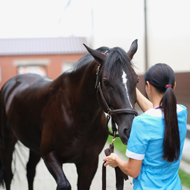VCMS handles highest number of mediations in three years
VCMS hit a three-year high in consumer satisfaction, mediation and resolution rates.
The Veterinary Client Mediation Service (VCMS) has released the annual Insight Report for its mediation activities.
The independent dispute resolution service has reported a record year, hitting a three-year high in consumer satisfaction, numbers of mediations and resolution rates.
In 2023-2024, the VCMS received 3,548 enquiries to its services, of which 98 per cent were within its remit to offer advice and support. This was a decrease of 2.6 per cent compared to the 2022-2023 period.
The VCMS supported 56 per cent of enquirers to raise and resolve their complaints directly with the practice in question.
There were 767 cases that opened for mediation in 2023-2024, marking the highest number of mediations handled by the VCMS in the past three years. The service achieved an 82 per cent resolution rate.
The main cause of pet owner concern was standard of care, consisting of 60 per cent of all complaints – a four per cent increase on the previous year.
Within this category, there was an increase in disputes about unexpected outcomes and vets not adequately investigating the issue. However, there was a 30 per cent decrease in misdiagnosis complaints.
Other concerns related to customer service, such as service and communication, (19 per cent) and clinical fees, namely clarity of fees, (14 per cent).
In many cases, animal owners and practices have reached resolutions to complaints and disputes. These resolutions have continued to be a mixture of both financial and non-financial outcomes.
Non-financial resolutions, such as apologies, explanations and support, made up 47 per cent of solutions to mediation cases. These outcomes sometimes included addressing disproportionate or unfair online communications.
Financial resolutions, meanwhile, have included goodwill gestures of an average value of £420.85 and discounts on veterinary fees.
Jennie Jones, head of the VCMS, said: “Analysis shows that veterinary complaints are complex and not solely linked to costs, with nearly half of resolutions involving communication, explanations and a shared understanding of the situation.
“We continue to feedback our insight to the veterinary sector to help continuous improvement around communication and supporting positive relationships between animal owners and veterinary practice teams.”
Image © Shutterstock



 The BEVA has opened two new roles on its Nurse Committee.
The BEVA has opened two new roles on its Nurse Committee.